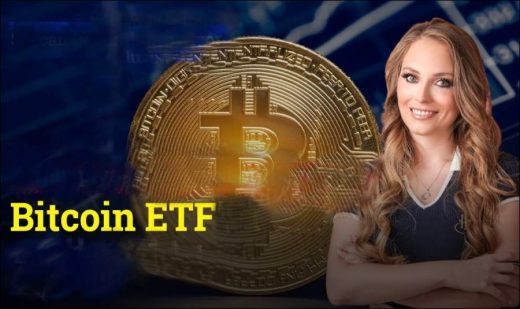Bitcoin ETFs already exist in the European Union, Canada, Brazil and Dubai. But as the U.S. is the center of world financial markets, including crypto markets, approval by its government would undeniably be a major event.
An ETF would shuttle new money into Bitcoin. While crypto exchanges such as Coinbase are the primary avenue for entering crypto today, the average American understandably has trust issues with them. KYC (know-your-customer) procedures and having to transfer funds to purchase crypto are also onerous as opposed to simply buying an ETF share. Crypto wallets, private keys and self-custody complicate matters further.
The institutions applying for a Bitcoin ETF deeply understand these hurdles. They know an ETF is an opportunity for a large segment of the population, who have thus far remained sidelined, to comfortably begin adding crypto exposure to their portfolio.
Bitcoin spot ETFs, in contrast to futures ETFs — which have traded in the U.S. since 2021 — may be particularly constructive to crypto markets. Spot ETFs, the type that all current applicants are applying for, would require the offering institutions to back the ETF with real Bitcoin. This differs from futures ETFs, which merely enable investors to trade an indexed derivative. In the case of futures ETFs, Bitcoin does not actually change hands. A new buyer of a spot ETF has a genuine positive impact on the price of the underlying asset.
Another way of thinking about a futures-based ETF is like two people betting on how the price of something will change. It’s more akin to a side bet on what will happen. Their bet has no direct effect on the price of the asset they are betting on.
A Bitcoin spot ETF issuer such as BlackRock or Fidelity must buy bona fide Bitcoin to back the shares of the fund that their customers hold. A Bitcoin spot ETF buy or sell will actually change the price of BTC.
The new source of fund flows into the space may provide the spark the industry needs to recover from a series of blows in 2022. The news itself will almost certainly cause a rush of buying in the short term. The volatility will breathe new life into the markets which have largely been subdued throughout this summer. The Grayscale decision on Aug. 29 produced a near immediate 6% Bitcoin price increase from US$26,100 to US$27,700. This increase fully re-traced on news of the SEC’s choice to delay all of the outstanding applications on Aug. 31 as the first decision deadline for most filings approached.
If the ETF is approved, it is possible that market gains will extend longer than only in the short term.
In the short to medium term, a reflexivity loop may be created whereby:
Bitcoin price increases on ETF approval news.
Investors desire Bitcoin allocation due to price increases.
Investors purchase shares in a spot ETF, which drives Bitcoin prices up further.
In the long term, we will see BlackRock et al shepherding clients to diversify part of their portfolio into Bitcoin. Passive investors will buy and hold for the long term. As Bitcoin’s supply is finite, the price is bound to be driven upward.
Gold appreciated eight years in a row after the initial spot Gold ETF was approved back in 2004. For all proclamations of Bitcoin as “digital gold,” it would be fitting for Bitcoin’s next upward cycle to similarly commence following ETF approval.
The world is not paying attention to Bitcoin at the moment. That will change before the year ends.
Views: 93



